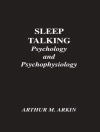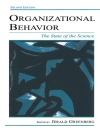Whereas most humans spend their time trying to get things right, psycholo- gists are perversely dedicated to error. Errors are extensively used to in- vestigate perception, memory, and performance; some clinicians study errors like tea leaves for clues to unconscious motives; and this volume presents the work of researchers who, in an excess of perversity, actually cause people to make predictable errors in speech and action. Some reasons for this oddity are clear. Errors seem to stand at the nexus of many deep-psychological questions. The very concept of error presupposes a goal or criterion by comparison to which an error is an error; and goals bring in the foundation issues of control, motivation, and volition (Baars, 1987, 1988; Wiener, 1961). Errors serve to measure the quality of performance in learning, in expert knowledge, and in brain damage and other dysfunctional states; and by surprising us, they often call attention to phenomena we might otherwise take for granted. Errors also seem to reveal the "natural joints" in perception, language, memory, and problem solving-revealing units that may otherwise be invisible (e. g. , Mac Kay, 1981; Miller, 1956; Newell & Simon, 1972; Treisman & Gelade, 1980).
Bernard J. Baars
Experimental Slips and Human Error [PDF ebook]
Exploring the Architecture of Volition
Experimental Slips and Human Error [PDF ebook]
Exploring the Architecture of Volition
购买此电子书可免费获赠一本!
语言 英语 ● 格式 PDF ● ISBN 9781489911643 ● 编辑 Bernard J. Baars ● 出版者 Springer US ● 发布时间 2013 ● 下载 3 时 ● 货币 EUR ● ID 4606437 ● 复制保护 Adobe DRM
需要具备DRM功能的电子书阅读器












